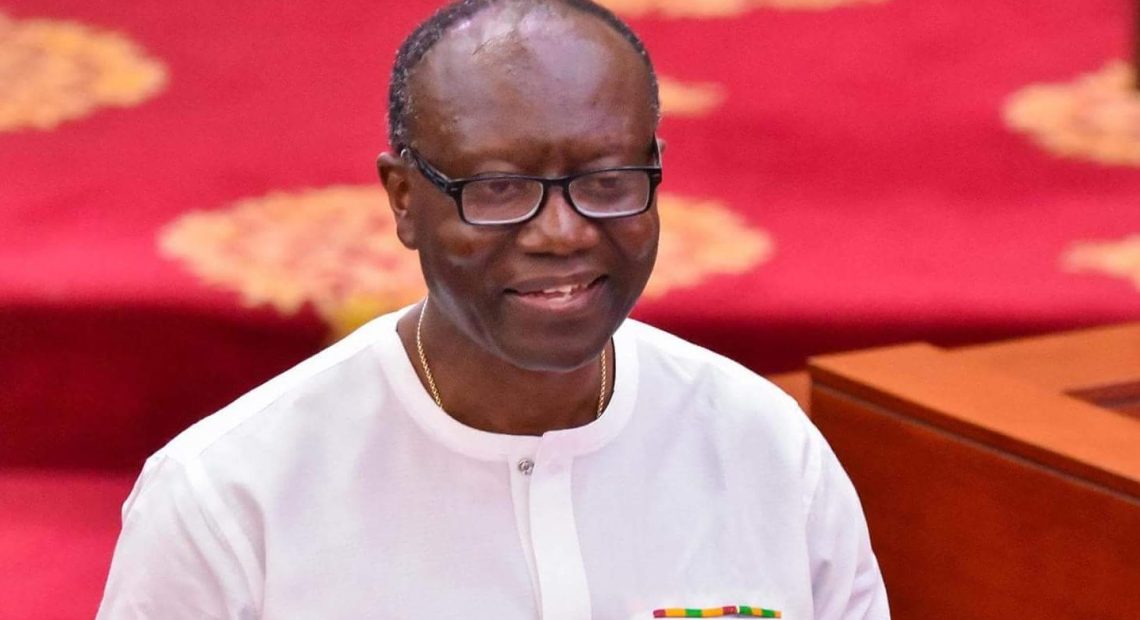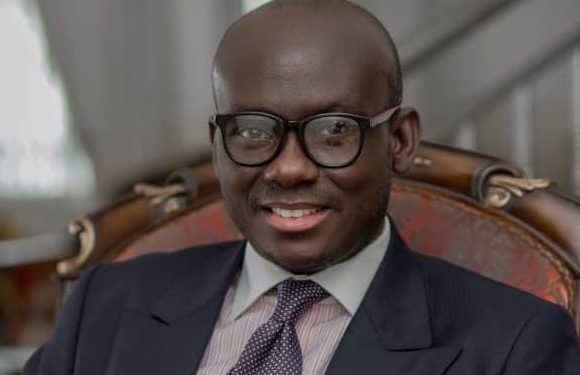Phase II Of ‘Planting For Food & Jobs’ Is Coming

– Finance Minister Reveals
By Gifty Arthur
The Minister of Finance and Economic Planning, Ken Ofori-Atta, has announced government is finalizing phase II of its flagship programme, Planting for Food and Jobs (PFJ), to be rolled out soon.
According to the minister, the programme, which will be a detailed review of the previous initiative that was launched in 2017, with five implementation modules, has been completed.
Mr. Ofori-Atta, who disclosed this while reading the Mid-Year Budget Review in Parliament yesterday, also said that some 126 factories are in operation across the country producing 160, 000 direct and indirect jobs.
The phase II of PFJ, he indicated, is to ensure a more efficient and targeted support for the sector, adding that the next edition will focus on inputs credit system, storage and distribution, among others.
“After a comprehensive review, Government is finalizing PFJ Phase II to ensure a more efficient and targeted support for the agricultural sector.”
The key elements of Phase II are Inputs Credit System, Storage and Distribution Infrastructure, Commodity Trading and Digitized Platform,” the minister said.
According to him, Planting for Food and Jobs has brought substantial improvements in the agriculture sector and this, he added, has resulted in increased food security, employment along agricultural value chains and accessibility of raw materials for developing industries.
The programme has directly contributed to increased crop yields for major food staples, such as maize, rice and soya by 135 percent, 67 percent and 18 percent respectively within the period.
Mr. Ofori-Atta said, another government flagship programme,“One District One Factory (1D1F),” is on course, as far as setting up of factories is concerned.
He said, so far, some 126 factories are in operation across the country, under the initiative implemented by the Trade and Industry Ministry as of June 2023.
This has provided more than 160, 000 direct and indirect employment for especially the teeming youth.
“Mr. Speaker, in line with Government’s unwavering commitment to industrialization, the implementation of the flagship One District One Factory (1D1F) Initiative is on course. As of June, 2023, 126 factories were operational nationwide. Over 160,000 direct and indirect jobs have been created, especially for the youth, who have been mobilized to establish agro-processing factories in 58 districts,” he told Parliament.
Meanwhile, Mr. Ofori-Atta has said the year 2022 was his worst year in office.
He says the year in question compelled him to take very “difficult decisions but necessary decisions” for the recovery of the Ghanaian economy.
According to him, key among these decisions were the government’s decision to seek a bailout from the International Monetary Fund (IMF).
He insisted that had it not been the impact of the COVID-19 outbreak and the Russia-Ukraine war, such a move would not have been undertaken.
“Mr. Speaker, 2022 was the most difficult year for me as Ghana’s Finance Minister. On July 1st, 2022, we took what was then a very difficult but necessary decision to request support from the IMF to implement our Post-COVID-19 Programme of Economic Growth (PC-PEG).”
“The country was going through a dire period of economic uncertainties and despondency,” he acknowledged
He disclosed that the economy is currently showing signs of recovery.
“Mr. Speaker, for the first six months of the year, we continue making progress to exceed our non-oil revenue targets for the year. We have seen improvements in non-oil tax revenue collection despite some noticeable shortfalls in VAT.”
“However, oil revenues have fallen short of expectations due to changes in global prices. We will, therefore, undertake a downward review of the oil-related revenue as well as the corresponding expenditures to align with the underperformance of some of our revenue handles. Specifically, this will impact the Annual Budget Funding Amount (ABFA).”
Mr. Ofori-Atta has thus urged Ghanaians to support the government in its quest to restore the country’s economy from its ravages.
He said the government is determined to ensure that the plight of the citizens is ameliorated urgently.
The finance minister had spoken quite emphatically that Ghana was not going to the IMF, but made a sudden U-turn that took country to the IMF, thus compelling critics to chastise him.
Source:Anchorghana.com




